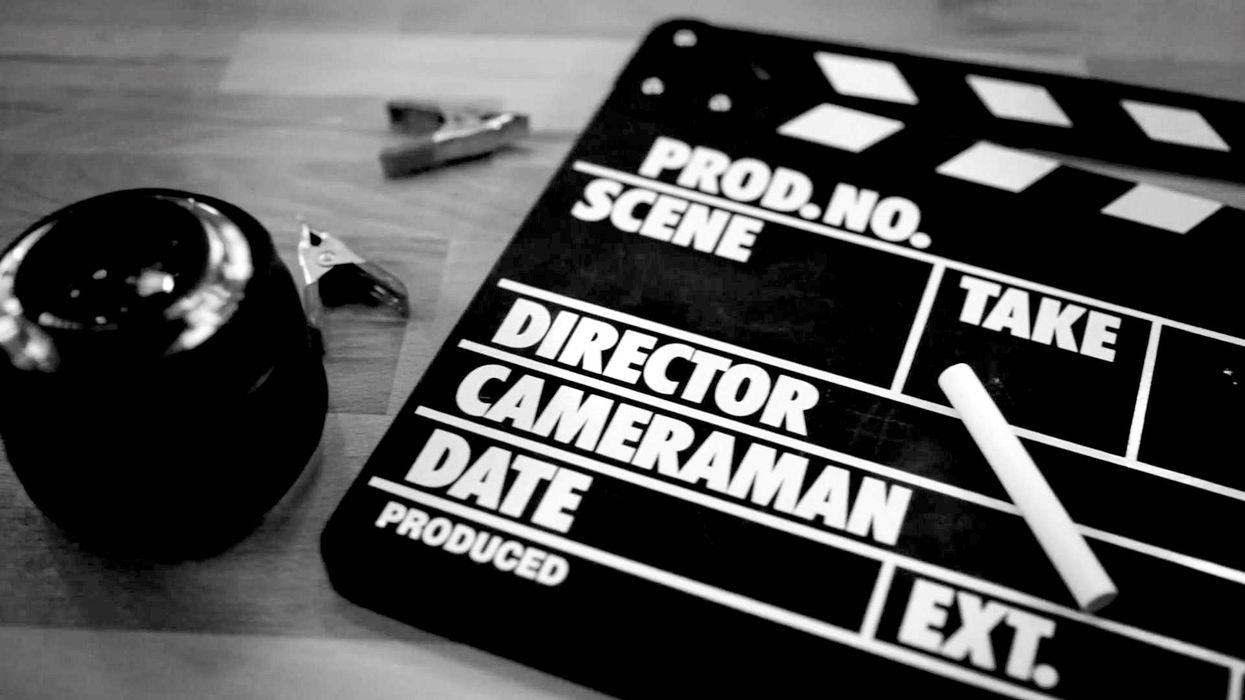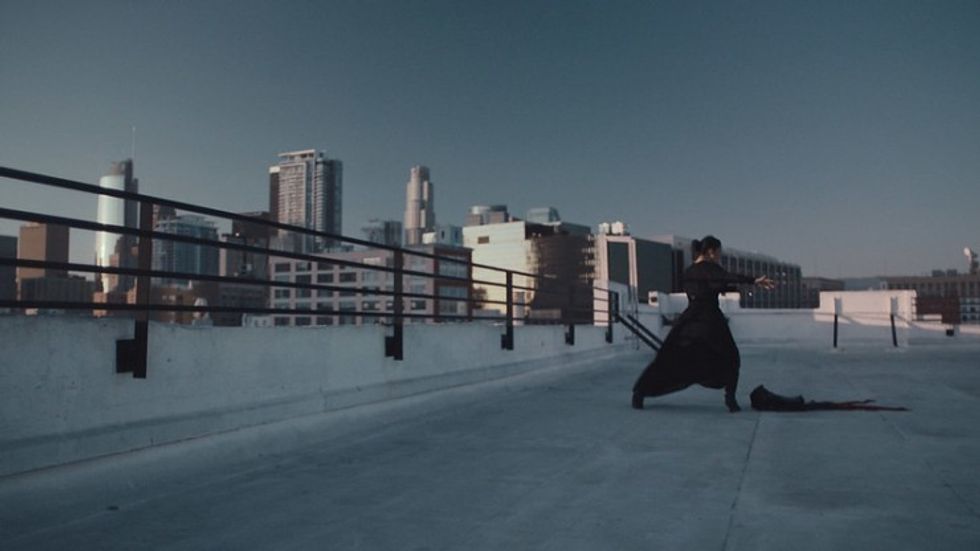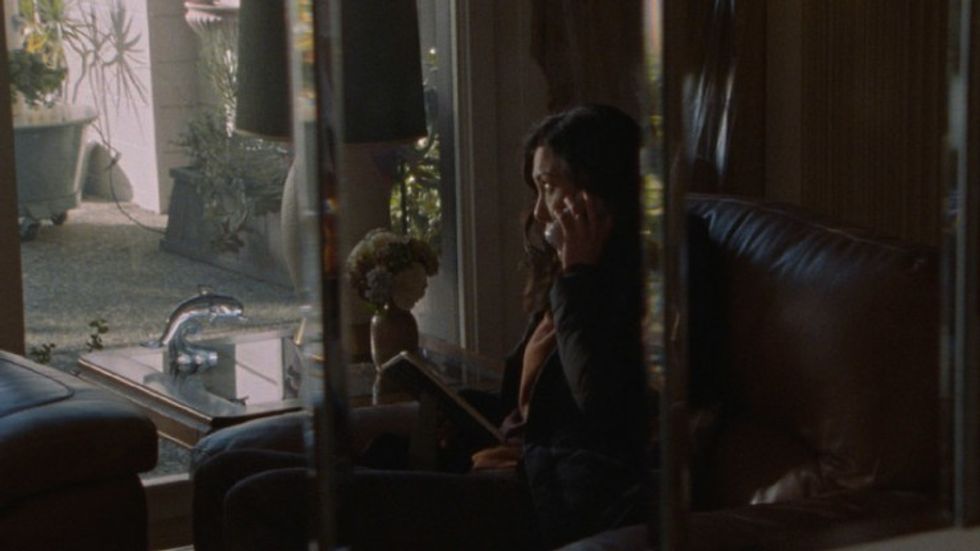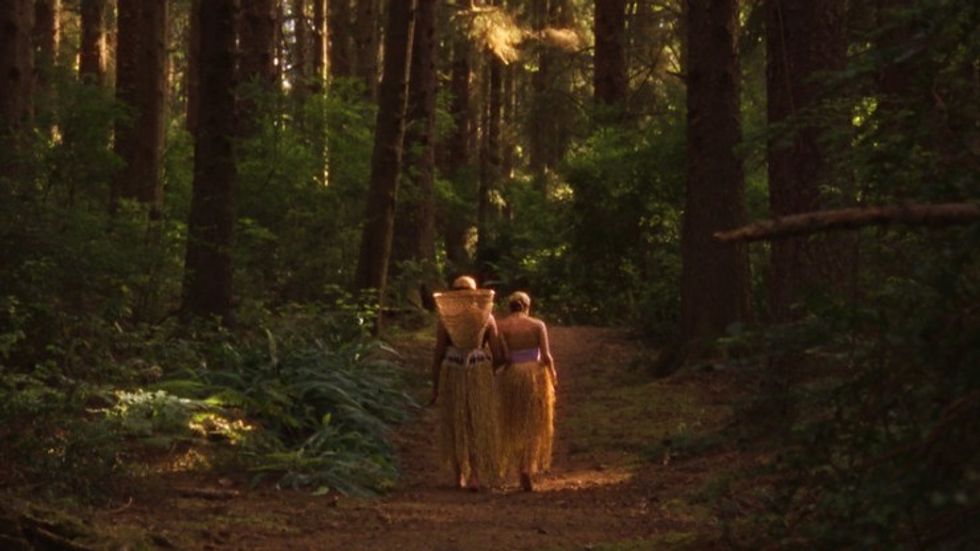How Do You Make a Living as a Filmmaker? Candid Answers from Directors at Sundance
Babysitter, Uber driver, restaurant server, and comic book clerk are a few of the jobs that filmmakers held to get them to Sundance.

It’s an age-old question for filmmakers. How do you make money?
Most of us would love to be hired to come in every day and direct the movie in our heads. But where exactly is that job posting, again?
In today’s landscape, most indie films are directed on spec in the hopes that money can be made when the film picks up distribution. So while you are trying to get your film made, how do you survive? We asked a handful of Sundance filmmakers about their strategy for survival, and if they had any odd jobs that worked for them.
What did we learn? You can play at the Sundance Film Festival, and your dad will still ask you when you’re getting a “real job.”
Working jobs in the "real world" builds character
For Gabriela Ortega, director of Huella, the jobs she worked before landing in the VO world are what taught her human behavior.
“I started in the industry as an actor and I have worked restaurant jobs, retail, in libraries, random sales gigs, ushering, and more," Ortega said. "It's a reality that many creatives face when starting out. About three years ago I found an in as a voice-over actor which allowed me to work less hours and make more money than I would have made in the three-day jobs I had at the time. I feel incredibly lucky to be in a position of having a 'day job' that is still artistic and something that I love.
"However, when I was just trying to get by during my service industry days, I remember giving myself timelines and goals for when I'd quit so that I wouldn't get sucked into a job I was not passionate about. I needed to force myself to think of those jobs as temporary to keep fighting for what I really wanted. I think it's important to fight for our creative agency even when we have those jobs and, in a way, to learn from them and connect them to our creative work. Being a server and a sales rep taught me a lot about human behavior, and there are experiences during those jobs that I have taken with me for other projects."

Work for free, and then in advertising (it lets you play with big equipment)
For Alejandro Loayza Grisi, director of Utama, working in marketing gave him a chance to learn the equipment he’d need for filmmaking.
“I did a lot of advertisement," he said. "It's a great thing because it also gives you opportunity to experiment and to work with bigger crews and with bigger equipment. I also made a lot of photo service, and I am a graphic designer as well. I think when I was starting, I made a lot of work with no payment, like music videos for friends. That was my school. I wouldn't change that for the world. I always had discussions with my mother, because she said, 'They should pay you for your work. You should charge for your work.' But I said, 'If I charge, then there will be no work.' So it was a good thing for us both. For the musicians, to have a music video and for me to have the opportunity to experiment and to learn. I've been lucky.”
Use music videos as an education, and babysit on the side
Like Loayza Grisi, Charlotte Hornsby, the director of photography onMaster,also found making music videos for free to be a staple way to learn.
“I realized that it was unlikely that I was going to get offered to shoot the kind of films that I wanted to shoot, that had the imagery I wanted to create," she said. "So a lot of my first approach to DPing was to direct music videos. I would approach anyone I knew who was in a band, and ask them if I could make a music video and then spend basically a year [on], because the budget was so slim. I was babysitting primarily at the time and also working on sets, but not as a DP. And so I would just try to labor over one music video, and make the backdrops from hand and enlist the help of friends to make the costumes by hand, and shoot it on film and be incredibly sparing. Shot list it to death and then only shoot a few rolls of film. That's just how I wanted to start putting out the work that I wanted to be shooting into the world.”
Get a job where your boss understands (and even supports) your passion
For Alex Fofonoff, director of While Mortals Sleep, having a job with downtime and a flexible schedule is the best route to creativity. (And, we assume, an employee discount on comics doesn’t hurt!)
“I've taken jobs that have allowed me a lot of flexibility. For the majority of the pandemic, I was working in a comic book shop where I was able to work on my scripts or watch other films when there were no customers in the shop. My boss was really understanding and let me take time off whenever I needed to do things to pursue my film-related aspirations. If it works for you financially, having that sort of freedom and space to still be creative is so important.”

Use your day job as a chance to test your pitch
For Rayka Zehtabchi, co-director of Long Line of Ladies, her quick-paced ride-share gig helped to communicate.
“If driving for Uber is considered an ‘odd job,’ I did that for a year or two while also making my first documentary. It was a great way to learn how to pitch projects to total strangers, often in a really short amount of time. Five-minute drive? No problem. I had a pitch ready for that.”
Get creative with a side hustle using passive income
For Damaris Corbin, director of 892, generating side income is best done when it didn’t take a lot of time away from filmmaking. If you are savvy enough to find it!
“There's been different answers for different phases of my career. Early on, I remember when I was in school, I sold websites. You can buy up websites that have a high ratio of hit clicks. And then you can turn it around and sell them for like three grand, five grand, 10 grand. And it's really passive income. I think I still have a couple left in there somewhere, but that's fizzled out. My goal as an artist has been to be able to sustain financially with art, and that's really hard. It's something that was pretty far out of my reach for a long time. And I'm grateful that now it's something that I can do. But I would say work on what you love until it doesn't become a matter of finances. Let that thing ultimately pay for you. It's really, really hard.”
When you know can direct, look to the theater
Shariffa Ali, director of You Go Girl!, is actually able to make money off directing, just in a different medium.
“I work as a theatre maker," Ali said. "I direct plays at theatres across the country. I guess it’s funny to see that theatre is my survival job. I teach Afrofuturism and theatre at Princeton. I facilitate artist-led anti-racism workshops. I used to work as a community coordinator for a big theatre company. That’s about it.”
Let TV pay the bills
For Adamma Ebo, director of Honk for Jesus. Save Your Soul, it was scoring TV directing or writing gigs.
“My main philosophy is to find a way to be able to scratch that creative itch while also being able to survive. So if it's not doing the things that you want to do directly, if it's not writing or directing your own film, looking into getting into television writing, if you're a writer. Looking to get into TV, directing if you're a director or both. A lot of people had this view of television as being the lesser medium, but I've found it very, very fulfilling and it definitely pays the bills well."

Work within the industry, and collect those contacts
For Adanne Ebo, the producer of Honk for Jesus. Save Your Soul, the road to full-time creativity meant full-time industry.
“Even if you're not a full-time filmmaker or a full-time creative, if possible finding a day job within the industry is helpful because you get access, you get resources, and a closeness that you wouldn't be able to have otherwise. For example, I worked as a business affairs executive for three and a half years, but at a studio but I worked within the industry because I wanted to have of that closeness. I learned a ton about the business side that I wouldn't have learned otherwise, and it also gave us so much access to things that we wouldn't have had if we were not still working within the industry. While working full time as a business affairs executive, but I was also writing on the side, producing shorts on the side, still creating.
"It got to a point where it felt like I had two full-time jobs, but only one was paying me. But it was what I was willing to do in order to reach my personal goal of being a full-time creative. So I think it's highly doable. Some people feel like they want their creative and their work-life to be completely separate sectors. Do whatever you can, whatever makes sense for you realistically, economically, but also what will be the most satisfying for you for creatively."
Treat your day job as a way to take in life
For Shaandiin Tome, co-director of Long Line of Ladies, the barriers to filmmaking are inspirational.
“It is so tough to find a way to make a living all while trying to be expressive and find the time to create art," Tome said. "I think looking at it in a way that whatever is keeping you from creating art is a way to look and listen to the world around you. I’m really happy for the moments I’ve had that aren’t related to film at all because it’s like people watching or taking in life. My creative wheels turn when I have a break. I used to have a whole bunch of different part-time jobs to afford being a filmmaker, and it was really tough to find a balance or even stability for a while. My dad still asks me when is my next job, and sometimes I can’t answer him.”
It’s not easy to survive as a filmmaker, but it is possible.
Do you have a philosophy about making a living, or a day job that lets you keep the lights on while staying creative? Leave it in the comments!












